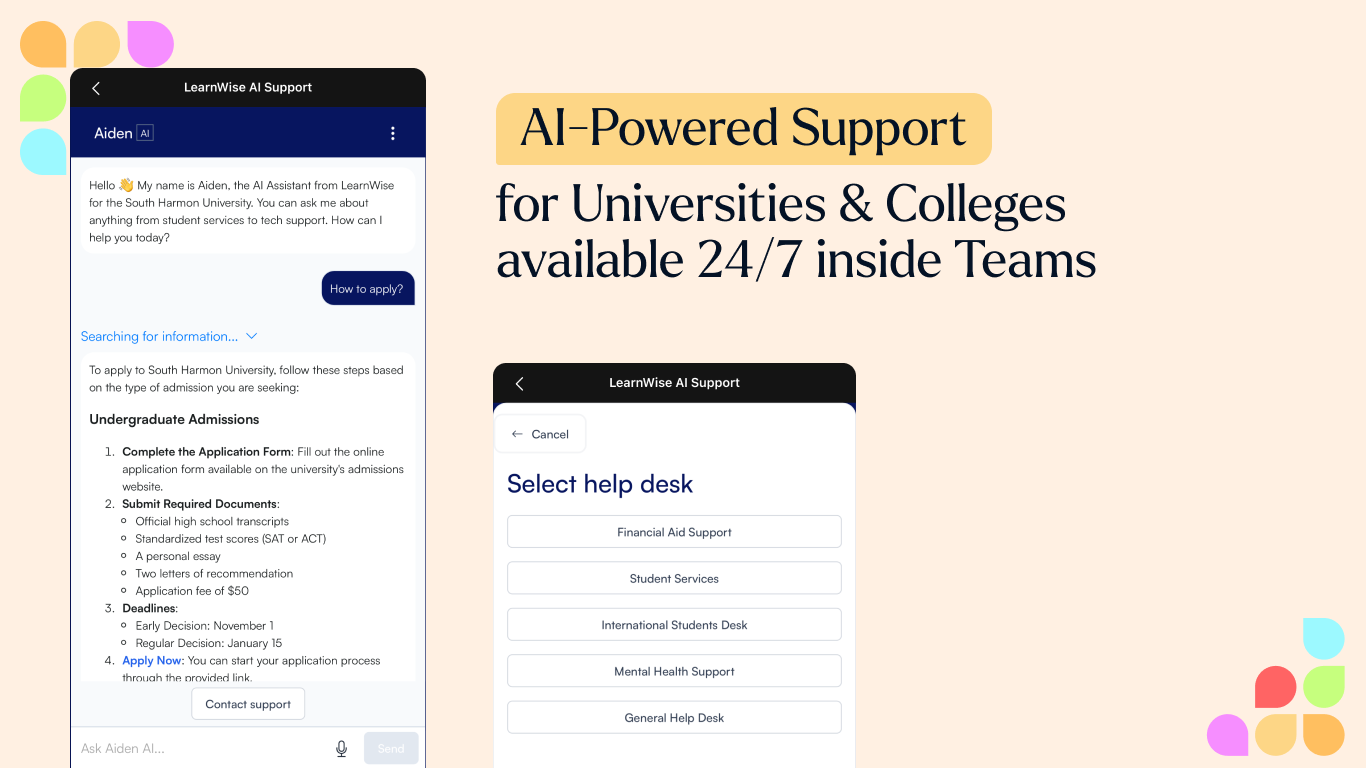Geeking Out Over EdTech: This Week’s Must-Reads with Ian from LearnWise
.png)
Hey there! It's Ian from LearnWise.
With the holiday season upon us, I've been taking time to slow down and spend some time geeking out about the latest AI trends in higher education. Turns out there are a lot of articles that, in my professional opinion, add zero value to educators! It's the last week of the year, so it's as good a time as any to reflect on the year ahead and AI's role in shaping the education landscape in 2025.
I sifted through dozens of articles so you don't have to. Here are my top 3 reads:
.png)
IT Trends to watch: 3 Ways to Link IT Innovation to Campus Impact in the Future - Educause
The generative AI boom offers opportunities to modernize campus experiences, automate complex processes, and alleviate administrative burdens. Addressing issues like staff burnout and attrition, particularly in student support roles, will require streamlined technologies that enhance navigation for students and simplify staff workflows. Leaders must prioritize solutions that balance legacy systems with new tools to maximize value and efficiency.
.png)
AI Support 🤝Student Success: Landmark Study Shows Significant Impact of AI Course Assistants on Student Success - Nectir.io
A landmark study at Los Angeles Pacific University shows that students using Nectir's AI course assistants achieved significantly higher GPAs than non-users. Analyzing over 2,000 student-course combinations and controlling for demographic variables, the research demonstrated that GPA improvements were directly linked to AI assistant usage. The AI tutors, which use Socratic dialogue and are available 24/7, were particularly valuable for working adults in online programs. The findings suggest AI course assistants can enhance educational equity while complementing human instruction.
.png)
Support your support staff: Leveraging AI is helping institutions meet goals - eCampus News
Embracing AI in higher education isn’t about job replacement; it’s a transformative partnership. AI empowers administrators to focus on impactful tasks, meaning institutional revenue is not wasted on tasks that could easily be automated. For context, the introduction of AI in higher education institutions saves administrators an average of 10 hours per week on administrative processes. Considering the average salary of administrative employees is $80,932, institutions are allocating approximately $389 per week for each full-time administrative employee to low-value tasks when they don’t implement AI.
It’s clear that IT leaders are still on the fence about AI in higher education, yet our research wormhole suggests that testing AI assistants is an appropriate initial AI-positive step.
Curious to know more about our AI Student Support Assistant? Check out our widest and biggest partnership yet - supporting 15 higher ed institutions across the United Kingdom with Jisc. Check out how we're meeting diverse institutions wherever they're at in their AI adoption journey in the UK here.
.png)
Our last email featured a handy one-pager highlighting institutional savings and a few key systems LearnWise works with. Check it out here.
Have a great week!
Best,
Ian





.png)
%20(1).png)
%20(1).png)
